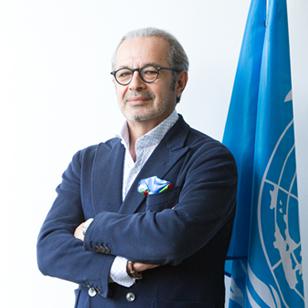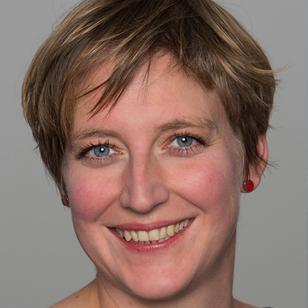UNSSC: The house of learning for UN 2.0
As a professional working in the UN’s world of learning and training, I have always tried to stay away from popular trends and the dish of the day. Instead, I focus on the real needs and demands and use these as the guiding posts for UNSSC’s offerings. Of course, I don’t have my hands in the development of every single course the College makes available to the UN system and its partners. I have a cadre of capable professional colleagues who know the ins and outs of the field and I often rely on their judgement calls. Nevertheless, as director of the organization, I’m privileged to set the overall direction and tone of our offerings. This has been one of the key contributing factors to our exponential growth and success over the years.
Developed as a strategic dimension of the Secretary General’s Our Common Agenda, UN 2.0, aims to create a UN system that is fit and capable of tackling 21st century global challenges. With its emphasis on strengthening our expertise and culture in five key areas – data, digital, innovation, foresight and behavioural science – this “Quintet of Change” has been a gift to the College.
Of course, prior to 2021 our offerings included learning programmes on data, innovation, strategic foresight, performance and results and behavioural science, but never as a comprehensive compendium signed and sealed by Secretary-General Antonio Guterres. First articulated by Guterres in 2021, this dynamic combination of capabilities has provided UNSSC with a solid niche. Furthermore, it has spurred internal debates and brainstorming across my dedicated UNSSC team. Together we began the process of outlining future UN-system learning needs within the five interconnected areas.
Potential Member State support
Today the Staff College delivers over 200 learning programmes every year, and I can confirm that UN 2.0 occupies a centrepiece in our learning menu. Packaging UN 2.0 as one of UNSSC’s learning priorities in 2023 and beyond has enabled us to attract Member States interest in supporting the College in this critical area. Once the discussions with Member States are final, we will announce how we intend to provide dedicated learning programmes related to UN 2.0.
As we approach the end of 2023, I think we can all agree it is time for us all to start planning for 2024. To give you, our readers, an idea of what our future UN 2.0 learning offerings will look like, I have asked Silke Weinlich, Deputy Director in charge of UNSSC’s Learning & Knowledge Services, to provide a snapshot of our plans for 2024:
Mainstreaming the Quintet of Change Skillsets
In 2024, we will continue to ensure that the Quintet of Change skillsets are mainstreamed across our learning programmes, both by including dedicated modules as well as by integrating and aligning UN 2.0 topics with other system-wide priorities that feature prominently in our work, such as the UN Leadership Framework. We will also apply the Quintet of Change to our own learning portfolio, for instance by investing in gamified digital approaches to learning as a means to create better choices and options.
UN 2.0 Bootcamps
At the same time, we will expand our stand-alone learning products on specific UN 2.0 elements tailored to the needs of specific groups of staff and working contexts. Look out for our UN 2.0 bootcamps. We will also provide easily accessible introductory courses and programmes on innovation, foresight and data. Simultaneously, we will offer courses that address the specific needs of peace and sustainable development practitioners in these contexts to ensure that modern data expertise is put into practice, creating impact at country level. We will support UN staff to explore how digitalization can foster greater efficiency in the workplace, enabling colleagues to learn new skills and supporting them in exploring their relevance and applicability to their daily work.
Innovation, Change Management and young people
Innovation continues to be a key focus. We stand ready not only to assist UN entities in assessing their own innovation readiness which is crucial also when it comes to identifying, devising and implementing their own UN 2.0 strategies. The UN Innovation Toolkit that we continue to host, as well as courses and programmes dedicated to developing key skills for innovation targeting individual UN staff within specific organizations as well as across the UN system.
The culture change envisaged in the context of UN 2.0 will not happen on its own and it needs to tie into processes that are already ongoing. We will support change managers across the UN system as well as those most affected by the UN 2.0 transformative process with new learning offerings. And we will continue our work with young UN staff (JPO induction and mid-deployment trainings) and the Youth Office of the Secretary-General to support the move towards empowering young people, in particular young women, by nurturing their leadership potential and amplifying their voices.
The college alone cannot and does not want to address all learning needs arising from the vision of a future-proof UN system able to respond to the complex challenges of this century. Fortunately, however, we can make important contributions to the professional development of individual staff members, functional and professional groups as well as strengthen the capacity of entire UN entities.
Fostering a forward-thinking culture
As a knowledge broker, through our partnerships with top universities, we can bring in cutting-edge expertise, making it relevant to specific UN contexts. As an interagency learning institution reaching more than 27,000 UN staff in 2023, and with our broad reach across different organizational levels, we are uniquely positioned to foster exchange and mutual learning and help promote the envisaged shift towards a forward-thinking culture.
As a convener and connector, we bring together UN staff and partner organizations, enabling cross-fertilization. We also facilitate communities of practice on learning or change management from across the UN system, allowing them to exchange know-how, best practices and solutions. And our advisory services support UN entities in their own paths towards greater agility, responsiveness and impact.

